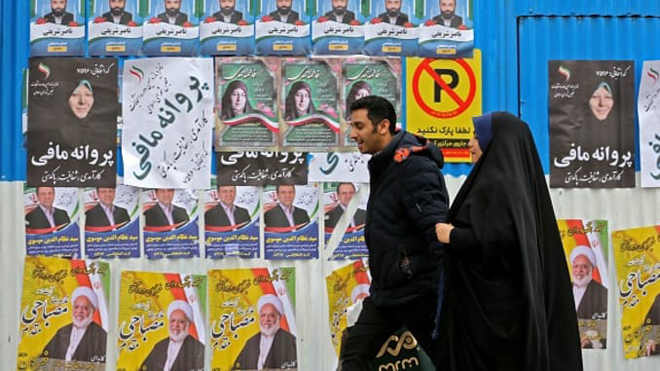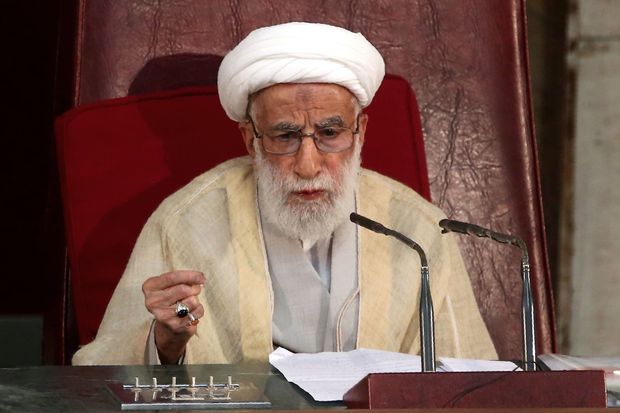Tehran … News Time
Parliamentary elections will be held in Iran today. However, many voters say they are no longer expecting politics, so they will not vote because of the ongoing US economic sanctions. There are about 7100 candidates for the 290 seats in these elections. Leader Ayatollah Ali Khamenei says the grip on parliament will be strengthened after the elections.
Alex Vatanka, Senior Fellow of the Middle East Institute based in Washington said that this is all a political theater. These elections are absolutely pointless because the Iranian system is designed in such a way that you can participate in elections only if your name is approved by Ayatollah Ali Khamenei or their representatives. It is to be noted that the Shurai observers of Iran have disqualified thousands of reformist and conservative candidates from participating in the elections. The Council, which consists of 12 members, determines the eligibility of election candidates. She tests their adherence to Islamic principles and their loyalty to the system of jurisprudence. The Shurai Supervisor has qualified about 7150 candidates for parliamentary elections. According to state TV, more than 14,000 candidates have checked the papers. Almost a third of the current parliamentarians are not allowed to run for re-election.
Ayatollah Ali Khamenei has called on Iranians to participate in parliamentary elections vigorously. According to Iran’s semi-official news agency Tasnim, he said in a statement on Tuesday that it was a religious, national and revolutionary duty. But Mostafa Tajzadeh, a former deputy minister of the era of former president Mohammad Khatami, was not impressed by his appeal. He said in a tweet that he would boycott these elections because they have become an effective means of appointing parliamentarians on behalf of Khamenei rather than neutrality. Some analysts say there may be two motives for disqualifying candidates on a wholesale basis. First, weaken President Hassan Rouhani and his outgoing Speaker Ali Larijani and their supporters, second, choosing a loyal parliament that will be a source of greater control in the upcoming presidential elections in 2021.
On the other hand, the United States has imposed sanctions on five Iranian officials accused of preventing thousands of candidates from participating in the parliamentary elections held on Friday, February 21 in Iran. Ahmad Jannati, a powerful cleric, among US officials who were subjected to US sanctions on Thursday who is accused of overseeing the disqualification of candidates as a member of the Guardian Council. According to AFP, conservative thinker Ahmad Jannati also plays an important role in the selection of a Supreme Leader in Iran. The US Secretary of State said in a statement that the Trump administration would not tolerate the manipulation of elections in support of the Iranian government’s dangerous agenda. He added that the United States has exposed these senior officials of the Iranian government by this action that are responsible for preventing the Iranian people from freely choosing their leaders.
It is understood that Iran’s rigorous establishment has prevented thousands of candidates from participating in Friday’s parliamentary elections. The Guardian Council, which includes 12 senior religious and legal scholars appointed by Iran’s Supreme Leader Ayatollah Khamenei, has used its power to prevent 90% of reformist candidates from participating in the elections. 9000 people, including members of parliament, have been barred from participating in elections on charges of financial misconduct and drug abuse. In 2016, reformers and their allies in Iran won 41 percent of the vote, compared to only 29 percent of the hard-won. In Iran, the ban on reformist candidates from participating in elections has increased the scope of criticism. The Reform High Council has also accused the Guardian Council of discriminating against its candidates.





